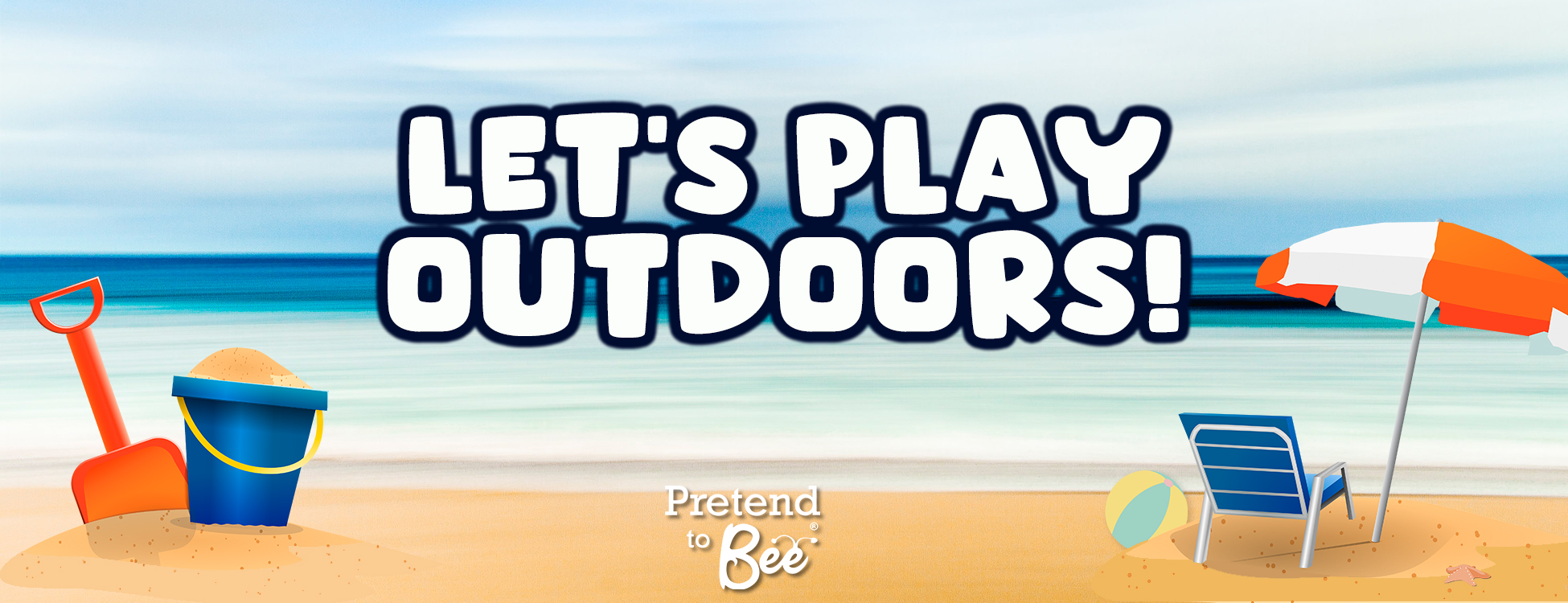How is playing outdoors good for us?

23 June 2023
How is playing outdoors good for us?
In recent generations children’s participation in outdoor play activities has declined and the amount of screen time has increased, lowering the expectation for contact with nature. So why is it important to important to bring children’s playtime outdoors?
Even on a cloudy day, spending time outside contributes towards our physical development and emotional and social growth. Exposure to direct sunlight helps our body create Vitamin D, which plays a key role in regulating nutrients like calcium and phosphate. Sunlight also helps regulate hormones, like serotonin, which affect our mood and melatonin which regulates our sleep cycle. Plus, bringing playtime outside can also help reduce stress and improve eye health.
If it is structured or free outdoor play you want to start with, it does not have to be expensive. Here are some bee-rilliant suggestions for playtime that will really bring together the benefits of outdoor play!
Get Creative!
Playing outside supports children’s imaginative play and is a fantastic opportunity to embrace their creative side. A wonderful way to do this is simply by taking their painting or drawing sets outside! Here children can improve their concentration and discover new concepts about the wildlife around them. When paints are involved things can always get a little messy, so be sure to kit them out with a PVC apron to protect their clothes, or an activity belt so they can keep all their pencils and paintbrushes neatly tucked away!
The outdoors is a great environment for children to practice their social skills and learn how to compromise with others during co-operative play, helping them develop positive relationships with their friends. Like during pretend play with friends where they can immerse themselves in their imagination as they run around in their dress-up costumes and explore concepts like understanding other children’s perspectives and emotions. Spending time outdoors can even motivate kids to create new games with their friends during their free outdoor play! This is perfect for children to learn how to collaborate with each other and provides them with a sense of independence as they build confidence in who they are.
Get Active!
From simply running around in a game of Tag to creating a playground obstacle course, playing outdoors gives children more space to play and be active. Being physically active lets children have fun whilst practicing their athletic abilities and encouraging their independence. After all this exercise, they sure will be ready for a good night’s rest!
Get Learning!
The natural environment can become a fun place of learning for children. Interacting more with nature will nurture their interest in wildlife where they are eager to learn new words and concepts. A fantastic way to do this is through activities like treasure hunts and playing eye-spy, or even just completing our amazing activity sheets whilst lying in the sun! Plus, taking playtime outside also has benefits afterwards, as it can improve children’s concentration and behaviour when back in the classroom.
Get Involved!
Interacting with nature and playing outdoors doesn’t always have to be fast paced. Don’t be afraid to slow down the pace and take part in a whole range of structured outdoors activities as a group, like going on a family walk or fruit picking at a ‘pick your own’ farm, to develop positive calming relationships with nature. Together you can also utilise objects you find outside like fallen branches and tree stumps to build a den! Activities like this give children an important opportunity to make calculated decisions in a supervised environment.
Remember to:
- Make sure kids are under parental supervision, even during free outdoor play.
- Keep kids hydrated with regular water breaks or a refreshing fruity snack like watermelon which are 93% water!
- Apply and re-apply sunscreen regularly to protect children’s skin from the Sun’s UV rays and prevent sunburn.
- Be aware of any possibly harmful plants and other hazards to young children in gardens and green spaces.



